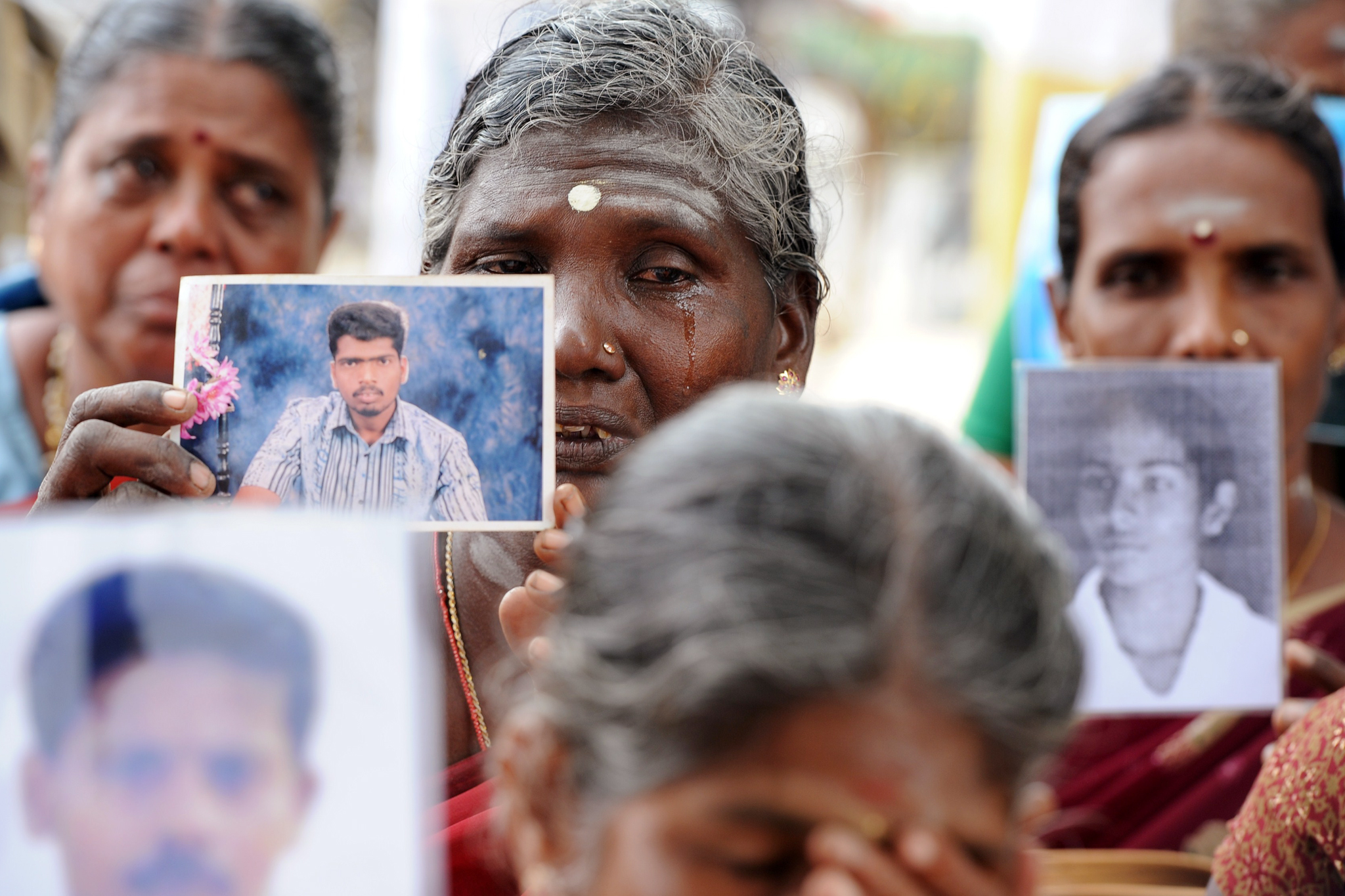Sri Lanka Sets Up Office Of Missing Persons Amidst Criticism
THE CITIZEN BUREAU

NEW DELHI: Sri Lankan President Maithripala Sirisena recently signed the Office on Missing Persons (OMP) Act, paving the way to set up a body to help trace around 20,000 people who are still missing -- eight years after the end of a three-decade-long civil war.
The bill was introduced in May last year, and passed unanimously on July 21 after it was presented by Sri Lankan Prime Minister Ranil Wickremesinghe.
Announcing the news, President Sirisena tweeted, "I signed the Office of Missing Persons Act today. This marks another step forward in Sri Lanka's path to sustained peace."
The OMP will search and trace missing persons, clarify the circumstances in which persons have gone missing and their fate, make recommendations towards addressing incidents of missing persons, protect the rights and interests of missing persons among other tasks. The office is the result of UN Human Rights Council resolutions passed against Sri Lanka, as allegations remain that the Sri Lankan government and military committed major human rights abuses as it brought to an end a protracted civil war.
The UN welcomed the move, with UN Secretary General António Guterres calling it “an important step for all Sri Lankans who are still looking for the truth about their loved ones.” “The United Nations stands ready to support this process and the Secretary-General looks forward to [the Office] becoming operational as soon as possible, starting with the appointment of independent commissioners,” said the Deputy Spokesman for the Secretary-General Farhan Haq, in a statement.
A press release by the UN reads: “The United Nations supported political efforts to resolve the conflict and, during its final stages in 2009, strongly advocated respect for human rights and a humane and orderly end to the fighting. In the aftermath of the conflict, the United Nations, through the work of its agencies, funds and programmes on the ground, has assisted with the safe and dignified return and resettlement of civilians uprooted by the conflict.The UN has also encouraged the Government of Sri Lanka to adopt policies to promote political reconciliation and a credible accountability process for allegations of wartime violations of international human rights and humanitarian law.”
The opposition in Sri Lanka, meanwhile, slammed the move, calling it a betrayal of the troops which which fought the Liberation Tigers of Tamil Eelam (LTTE) in the civil war.
An estimated 20,000 people are believed to be missing after the end of the war, which killed over 100,000.
The role of the state in bringing the war to an end has been criticised by organisations and governments globally, with many accusing Colombo of human rights abuses. Human rights groups such as Amnesty International, Human Rights Watch and Asian Human Rights Commission have documented many of the disappearances and attributed them to the Sri Lankan security forces, pro-government paramilitary groups and Sri Lankan Tamil militant groups.
Central to the case of missing persons is the role of ‘white vans.’ Many Tamil nationalists claim there was a resurgence of abductions in 2005 after the failure of Norwegian mediated peace process. The victims of the abductions were predominantly Sri Lankan Tamils living in Jaffna and the capital Colombo. A notable feature in the abductions is the use of white vans without number plates. They say white van abductions were a part of life in Jaffna and the abductions were carried with impunity even during curfew hours. Several youth were also abducted in Colombo by white vans in 2008. The families of the victims accused the then navy commander and Gotabhaya Rajapaksa of the abductions.
Then president Mahinda Rajapaksa's brother and then defence secretary Gotabhaya Rajapaksa is accused of being the "architect of white van abductions" and is accused of silencing critics and dissidents.
The allegations have contributed to human rights violations and alleged war crimes being a central point of criticism of Sri Lanka’s means to end the civil war. While the OMP is an effort to address this criticism, many say that the office is a piecemeal solution.
For one, the families of the missing persons were not consulted or involved in any way. Ruki Fernando, a Colombo-based human rights activist, criticised the draft bill on these grounds. “Despite serious reservations about government’s intentions, I and several activists and families of disappeared persons had made written and oral submissions, highlighting serious concerns about the OMP and with practical and specific suggestions. We have no idea how much of it had been taken on board during the last few weeks before cabinet approval. Now that cabinet approval has been given, it’s likely that a draft bill will finalized by the legal draftsman, gazetted, tabled in parliament and passed. Technically, there’s still space for families and others to give input during these phases, but it’s extremely unlikely input at this stage can influence the OMP,” Fernando said.
Additionally, the government clarified last week that no one will be prosecuted for past action.



